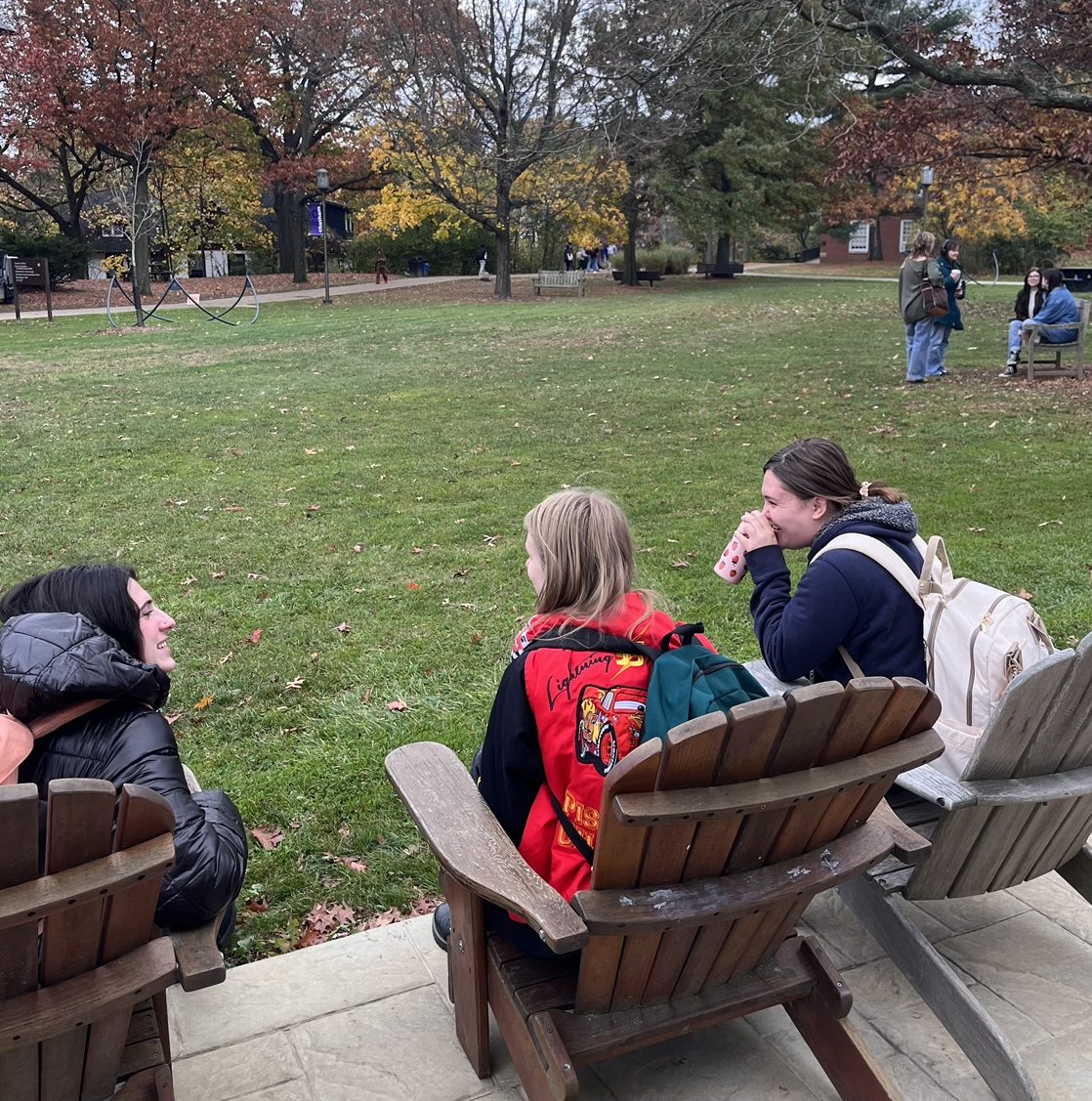In a world that frequently places great value on grandeur, the potential advantages of enrolling in a smaller-scale college campus can easily be underestimated. My own journey through higher education initially aligned with this idea as I spent two terms at Coastal Carolina University in South Carolina, which boasts a student population of roughly 10,000. My decision to transfer to Chatham University has highlighted the benefits offered by a smaller campus.
As Chatham undergoes an extensive reorganization process, it can be easy to overlook the positives that our school holds over others. Juxtaposing intimate university grounds with far more expansive ones immediately emphasizes some key differences: class size, community and student influence on campus culture.
Having smaller classes means students get more personalized attention from professors. Given Chatham’s student-to-faculty ratio, students are provided with the ability to form far more individualized relationships with faculty and staff, which wouldn’t be nearly as prevalent at a larger university.
Professors at smaller-scale universities have greater chances to provide personalized guidance to students, such as feedback on assignments or academic and professional opportunities that may emerge. Given the deeper familiarity that professors at smaller institutions can have with individual students, they are better equipped to cater to specific student interests.
One of my professors was aware of my passion for music and has sent me articles and videos, all centered around the study of music, to help me understand the class material. Such personalized support was far less likely to occur during my time at my previous university.
While larger universities undeniably accommodate a significantly greater student population than what would be possible at a university of a smaller scale, this doesn’t always equate to an improved experience for individuals. In fact, it can often lead to a sense of disconnection.
I can recall numerous occasions when I wandered aimlessly through Coastal Carolina’s expansive campus, desperately searching for a spot where I could belong. Trips to the dining hall alone, limited conversation in lecture-style classes, densely populated sporting events and much more made it difficult for me to stand out and make connections with other students. Although it might seem easy to temporarily adopt an extroverted facade for socializing, such a choice would directly contradict my genuine persona, or truly that of anyone who may take a more restrained approach to social interactions.
I’ve found that Chatham cultivates a more tight-knit community. Unlike my previous struggles, smaller class sizes have allowed me to develop social connections much more rapidly as being confined in a small space makes communication inevitable.
While a bit jarring at first, this ultimately allowed me to grow socially. Developing the ability to voice my opinions and ideas in classes led me to finding my voice outside of them. I joined Chatham’s film club, Technicougar, through a casual conversation with a fellow student. This would have never happened att my former university whereI experienced a far greater sense of isolation.
At Coastal Carolina, my only exposure to clubs and organizations was through sporadic engagement fairs, which, in concept, were meant to foster a sense of belonging for students with niche interests. However, the overwhelming number of students often made it intimidating to approach these clubs.
And at a smaller university, it’s much easier to have a voice and play a pivotal role in driving change.
At my previous university, it seemed as though individualized student concerns were overshadowed by the sheer scale of the school itself. Conversely, Chatham has the advantages of a small-scale university when navigating through uncertain periods of change.
Student-organized walkouts, picketing and other forms of constructive engagement can help to better represent our concerns through discourse. Such events are bound to have more reach and thus, more impact since a smaller student population can result in a more cohesive and influential effort to bring about change.
As a collective student body, we hold the power to influence the evolution of our academic community. While Chatham is currently undergoing a period of uncertainty and change, it is crucial for students to recognize the strengths we hold over larger campus communities.
The initial university experience I had at Coastal Carolina accentuates the close-knit qualities of Chatham. We should continue to embrace this unique quality of our school: the enduring essence of togetherness that defines Chatham University.



